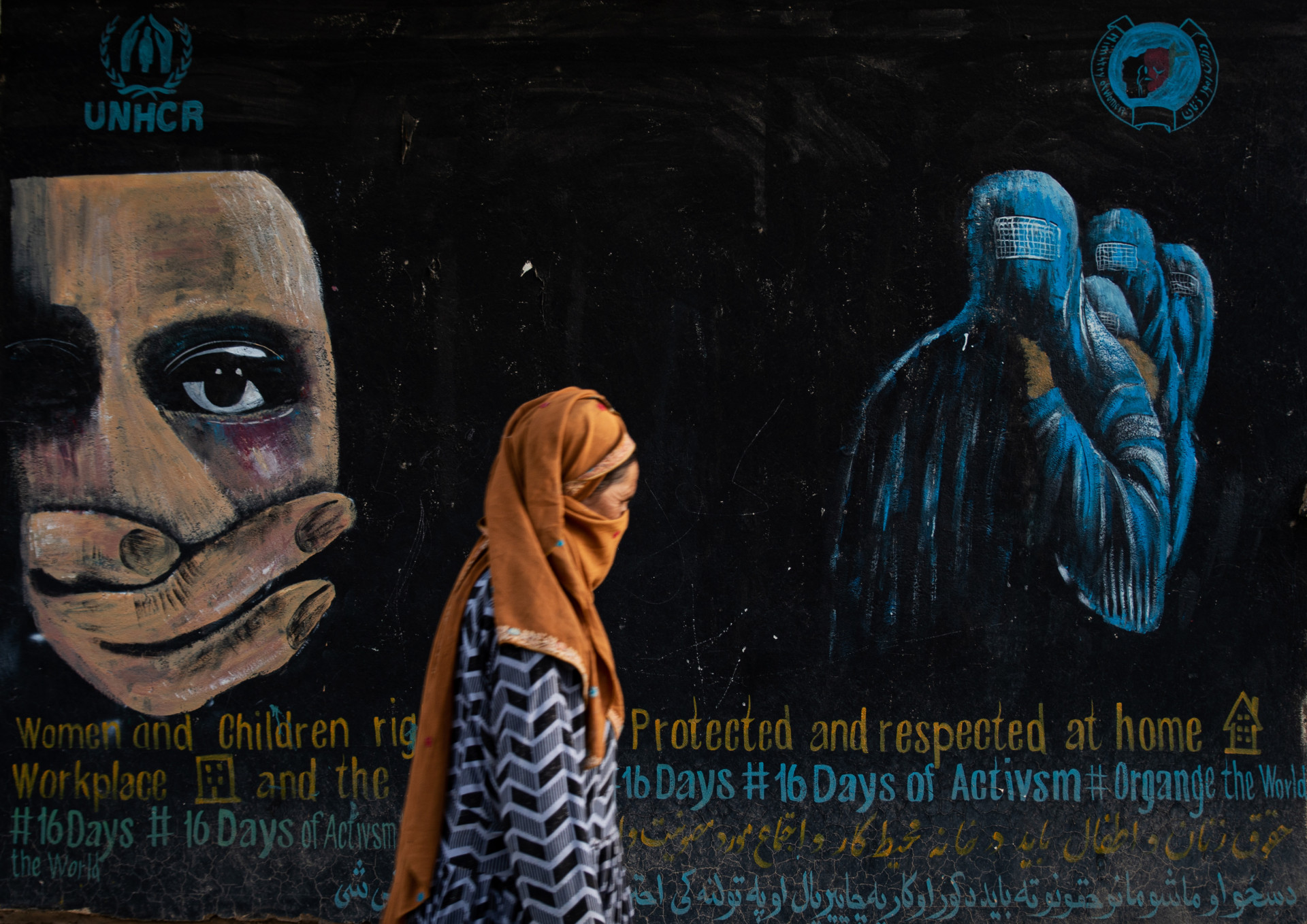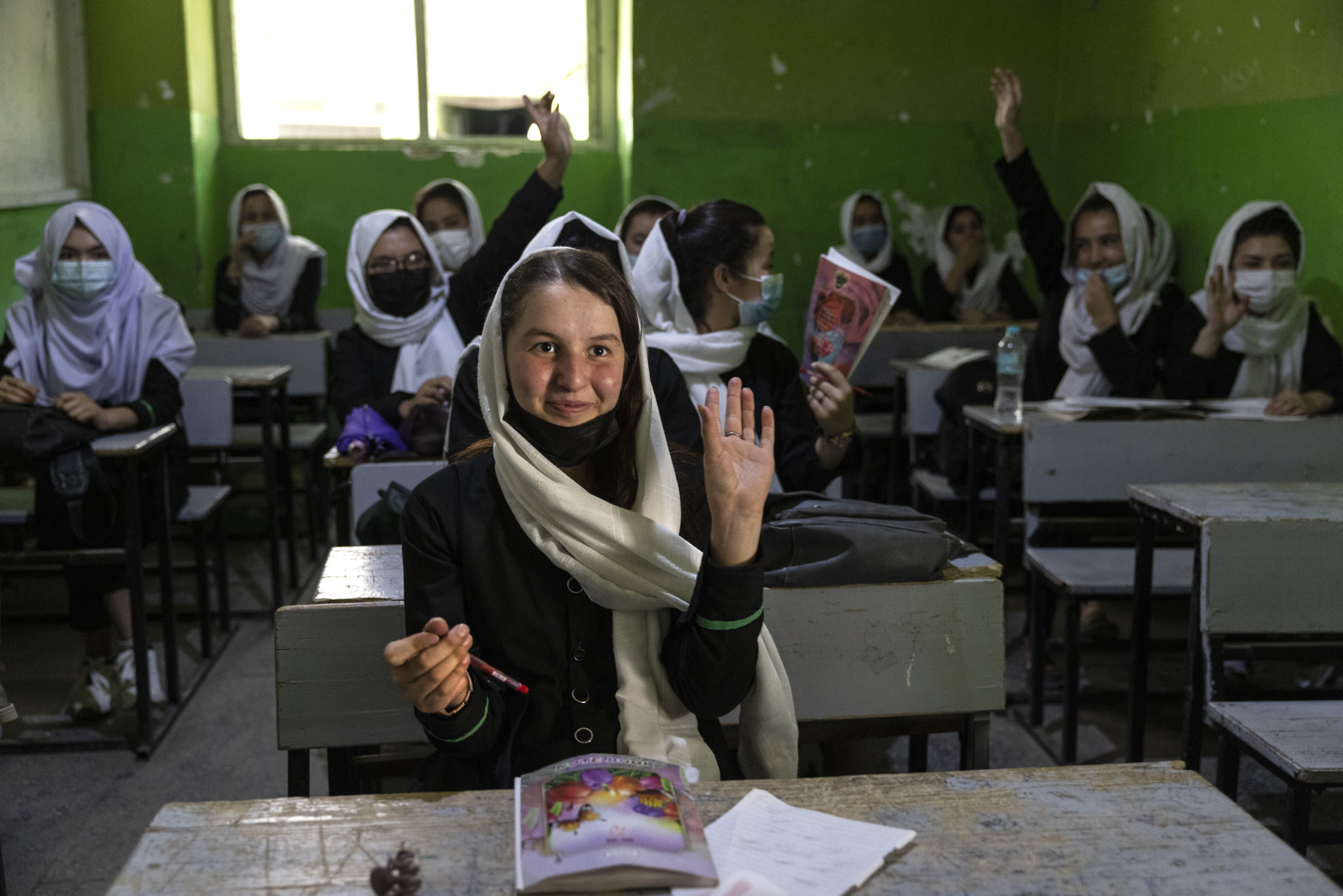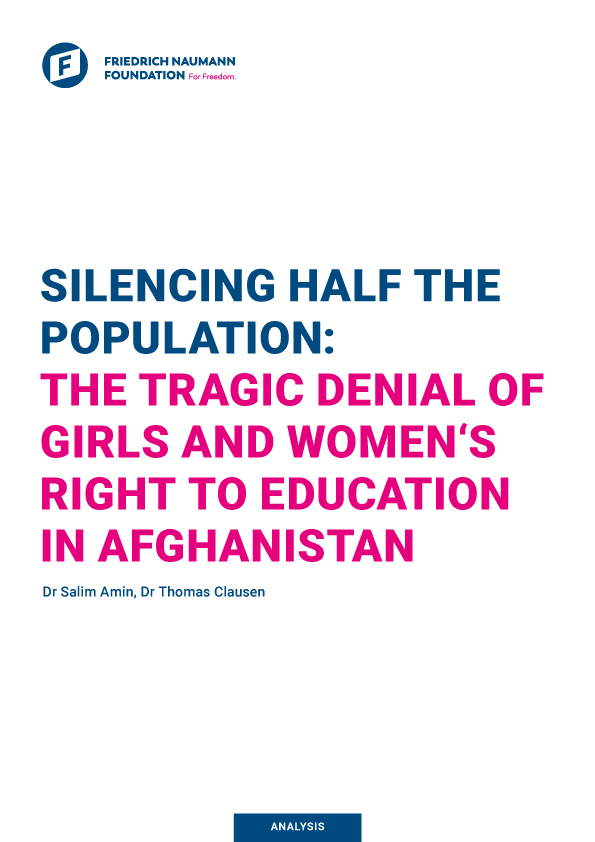The Tragic Denial of Girls and Women‘s Right to Education
Afghanistan
August 12, 2023 marked two years since the Taliban seized power in Kabul through a political agreement in Doha, effectively ending Afghanistan's nascent democracy and triggering severe human rights abuses. Under the Taliban's de facto rule, they are imposing "gender apartheid," echoing their 1996-2000 regime. Afghan women have faced severe discrimination during these two years, with their participation in public life significantly curtailed.
This research paper analyzes the deprivation of women's right to education in Afghanistan by the Taliban. It argues that girls' access to educational institutions has been progressively restricted, with women having been banned from higher education since December 20, 2022. Experts have documented these systematic human rights abuses. These violations persist despite Afghanistan's commitments as a member of the international community, having signed and ratified various international human rights conventions. The Taliban are obligated to respect women's rights and ensure their implementation, whether they are recognized de facto or de jure by the international community. However, the Taliban not only failed to protect Afghan women but actively violated their fundamental rights.
The international community bears a responsibility, as education is a universal human right. While pressuring the Taliban to enforce human rights in the current Afghan political climate is challenging, it remains crucial to explore avenues for improving the situation for Afghan women - especially for those countries that were present in Afghanistan for over two decades following United Nations Security Council Resolution 1378. Despite the challenging circumstances, this study provides recommendations for enhancing the situation for Afghan women, including leveraging international law, diplomatic pressure, and direct support to Afghan girls and women, such as through online education programs. Policymakers should prioritize women's rights as a fundamental component of international policy, not merely an accessory.
Women’s rights



